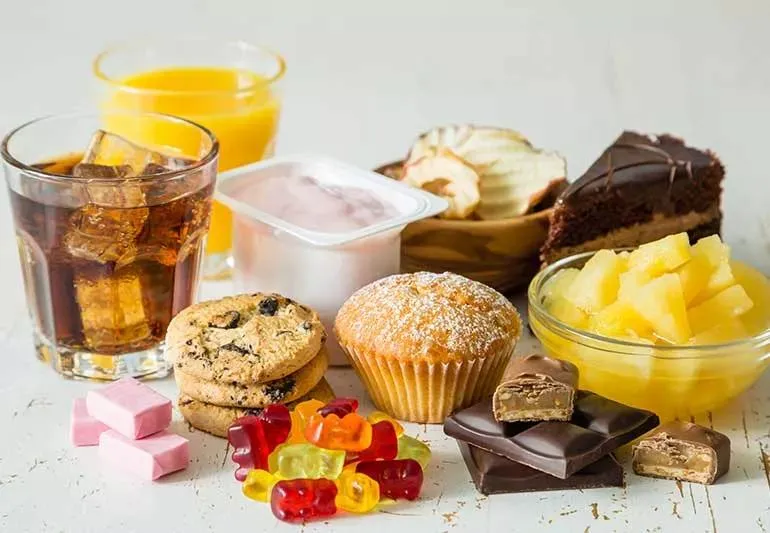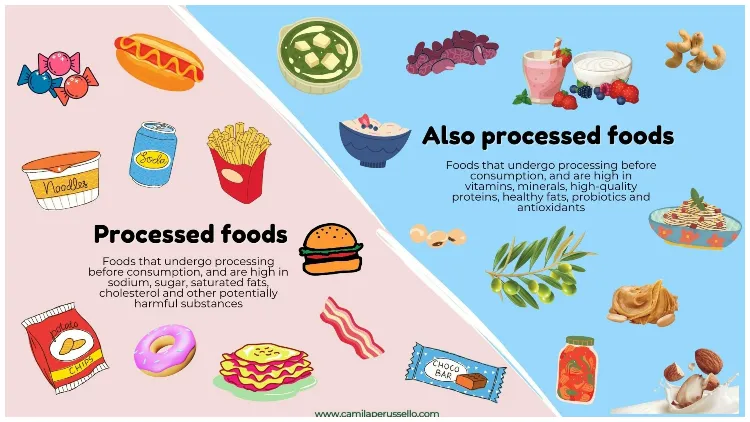Healthy Snacks for Kids:

When it comes to raising healthy kids, one of the most important things you can do is provide them with nutritious snacks. Healthy snacks not only fuel their growing bodies but also help them develop lifelong healthy eating habits. In this article, we’ll explore the importance of healthy snacks, discuss kids’ nutritional needs, and provide you with a variety of snack ideas that are both nutritious and easy to prepare.
Importance of Healthy Snacks
Nutritional Benefits
Healthy snacks play a crucial role in meeting the nutritional needs of children. Kids are constantly growing, and their bodies require a steady supply of vitamins, minerals, and energy to support this growth. Snacks offer a convenient way to fill the gaps between meals and ensure that kids are getting the nutrients they need throughout the day.
Building Healthy Eating Habits
Snacks are also an opportunity to build healthy eating habits. By offering nutritious options instead of sugary or processed foods, you can teach your kids to make better food choices as they grow older. Developing these habits early can lead to a lifetime of healthier eating patterns.
Understanding Kids’ Nutritional Needs
Key Nutrients for Growing Bodies
Kids need a variety of nutrients to support their growth and development. Key nutrients include protein for muscle development, calcium for strong bones, and vitamins such as A, C, and D for overall health. Iron is also essential, particularly for energy levels and cognitive function.
Balancing Energy and Nutrition
Children are active and burn energy quickly, so their snacks should be both nutritious and energy-dense. Balancing carbohydrates, proteins, and healthy fats in snacks will provide sustained energy and keep them feeling full and satisfied between meals.
Common Pitfalls in Kids’ Snacking
High-Sugar Snacks

- Candy: A classic source of added sugars, with many varieties containing high levels of sugar per serving.
- Cookies and Cakes: Baked goods often contain substantial amounts of sugar to enhance flavor and texture.
- Ice Cream and Yogurt: Many dairy desserts, especially flavored yogurts, can be loaded with added sugars, sometimes exceeding daily limits in a single serving.
- Granola Bars: Marketed as healthy, many granola and protein bars contain high amounts of sugar, often more than candy bars.
- Sweetened Beverages: Soft drinks, energy drinks, and sweetened teas can contain excessive sugar, contributing significantly to daily intake.
- Fruit Juices and Smoothies: Even 100% fruit juices can have high sugar content, especially if they are sweetened or made from concentrate.
- Sauces and Condiments: Items like ketchup, barbecue sauce, and salad dressings often have hidden sugars that can add up quickly.
- Breakfast Cereals: Many cereals, especially those marketed to children, are high in added sugars, making them less healthy than they appear.
One of the most common pitfalls in kids’ snacking is the overconsumption of high-sugar snacks. Foods like candy, cookies, and sugary drinks can lead to energy spikes and crashes, mood swings, and long-term health issues such as obesity and tooth decay.
Processed Foods

- Nutritional Deficiencies: Heavily processed foods often lack essential nutrients and fiber, leading to a diet that is calorie-dense but nutritionally poor.
- Increased Disease Risk: Regular consumption of ultra-processed foods is linked to higher risks of obesity, type 2 diabetes, heart disease, and certain cancers. For instance, studies have shown that increased intake of these foods correlates with greater mortality rates.
- Addictive Properties: Processed foods are often designed to be highly palatable, which can lead to overeating and cravings. This is partly due to their low fiber content and high sugar levels, which can make them easier to consume in large quantities.
- High Sodium and Sugar Content: Many processed foods contain excessive amounts of sodium and added sugars, contributing to hypertension, fluid retention, and increased risk of chronic diseases.
Processed foods are another concern. While convenient, many processed snacks are high in unhealthy fats, sodium, and artificial ingredients. These can contribute to poor health outcomes and should be limited in a child’s diet.
Easy and Nutritious Snack Ideas

Fruits and Vegetables
Fruits and vegetables are the perfect snack options for kids. They’re naturally sweet, packed with vitamins, and easy to prepare.
Fun Ways to Serve Fruits
Try slicing fruits into fun shapes, making fruit kabobs, or offering a colorful fruit salad. You can also freeze grapes or banana slices for a refreshing treat on hot days.
Creative Veggie Snacks
For vegetables, consider serving them with a healthy dip like hummus or yogurt-based ranch. You can also create veggie sticks, cucumber sandwiches, or baked veggie chips to make vegetables more appealing.
Protein-Packed Snacks
Protein is essential for growth and helps kids feel full longer. Incorporate protein-rich snacks into their diet.
Nuts and Seeds
Almonds, walnuts, and sunflower seeds are great options. Just be mindful of portion sizes, as nuts are high in calories.
Dairy Options
Greek yogurt, cheese sticks, and cottage cheese are excellent sources of protein and calcium. Pair them with fruits or whole-grain crackers for a balanced snack.
Whole Grains for Energy
Whole grains provide long-lasting energy and are a good source of fiber.
Homemade Granola Bars
Making granola bars at home allows you to control the ingredients. Use oats, nuts, seeds, and a bit of honey to create a tasty, nutritious snack.
Whole Grain Crackers
Whole grain crackers paired with cheese, hummus, or a slice of turkey can make a filling and nutritious snack.
Incorporating Snacks into Daily Routines
Snack Time Schedules
Establishing a snack time routine helps prevent overeating and ensures kids are getting the right balance of nutrients throughout the day. Plan snacks between meals to keep energy levels steady.
Packing Healthy Snacks for School
When packing snacks for school, opt for portable options like fruit slices, cheese sticks, or a small container of nuts. Avoid processed snacks and sugary treats to keep your child energized and focused.
Involving Kids in Snack Preparation
Benefits of Cooking Together
Involving kids in snack preparation can be a fun and educational experience. It teaches them about healthy eating, encourages them to try new foods, and helps them develop basic cooking skills.
Simple Recipes Kids Can Help With
Choose simple recipes that kids can help with, such as making their own fruit skewers, assembling yogurt parfaits, or spreading peanut butter on whole-grain crackers.
Healthy Store-Bought Snack Options
How to Read Nutrition Labels
When buying store-bought snacks, it’s important to read nutrition labels. Look for snacks with low sugar content, high fiber, and whole ingredients. Avoid snacks with artificial additives and preservatives.
Best Choices in the Aisle
Some healthy store-bought snack options include whole grain crackers, dried fruit without added sugar, and natural nut butters. Look for brands that prioritize organic and non-GMO ingredients.
Snacks for Special Dietary Needs
Gluten-Free Options
If your child has a gluten intolerance or celiac disease, there are plenty of gluten-free snack options available. Rice cakes, gluten-free crackers, and fruit are all safe and healthy choices.
Dairy-Free and Vegan Choices
For kids who are dairy-free or vegan, consider snacks like almond yogurt, coconut-based snacks, and plant-based protein bars. Always check the labels to ensure they meet your child’s dietary needs.
Fun Snack Ideas for Picky Eaters
Making Snacks Appealing
Picky eaters can be a challenge, but with a little creativity, you can make healthy snacks appealing. Use colorful plates, fun shapes, and playful presentation to make snacks more inviting.
Sneaky Veggies and Hidden Nutrition
Incorporate vegetables into snacks without your child even noticing. Blend spinach into a smoothie, add grated carrots to muffins, or use cauliflower in a cheese dip.
Budget-Friendly Healthy Snacks
Affordable Homemade Snacks
Homemade snacks can be both healthy and budget-friendly. Popcorn, homemade trail mix, and vegetable sticks with hummus are all affordable options that pack a nutritional punch.
Cost-Effective Store-Bought Alternatives
If you prefer store-bought snacks, look for sales on healthy options or buy in bulk to save money. Choosing whole foods like fruits, vegetables, and nuts is often more cost-effective than processed snacks.
Healthy Snacks for Active Kids
Pre- and Post-Activity Snacks
Active kids need snacks that provide energy before activities and help them recover afterward. Pre-activity snacks might include a banana with peanut butter, while post-activity options could be a smoothie with protein powder.
Hydration and Snack Pairings
Don’t forget about hydration! Pair snacks with water or a natural electrolyte drink to keep your child hydrated, especially after physical activity.
Teaching Kids About Healthy Eating
Importance of Education
Teaching kids about the importance of healthy eating empowers them to make good choices on their own. Explain how different foods affect their bodies and why certain snacks are better than others.
Fun Ways to Learn About Nutrition
Make learning about nutrition fun by using games, apps, or books that focus on healthy eating. Cooking together and discussing the benefits of the foods you’re preparing can also be an effective educational tool.
Conclusion
Providing healthy snacks for kids is an essential part of supporting their growth and development. By understanding their nutritional needs and making informed choices, you can ensure your children are eating snacks that fuel their bodies and minds. Involving kids in snack preparation, choosing nutritious store-bought options, and being mindful of special dietary needs are all key to fostering healthy eating habits that will last a lifetime.
Also Read :
- Signs of Vitamin B12 Deficiency: What to Look For
- Best Rear Delt Exercises for a Stronger, Balanced Shoulders
- Understanding the Monkeypox Outbreak: Key Insights & Tips
- 15 Tasty High-Protein, Low-Carb Recipes for Healthy Eating
- Overcome Maladaptive Daydreaming with Mindful Meditation
- Ultimate Keto Diet Plan: Simple Steps for Effective Results
- Release Trauma with Somatic Exercises Today!
FAQ’S:
What are the best fruits for kids’ snacks?
The best fruits for kids’ snacks include apples, bananas, berries, and oranges. These fruits are packed with vitamins, easy to prepare, and perfect for on-the-go snacking.
How often should kids snack?
Kids should have snacks 1-2 times a day, depending on their activity level and meal schedule. Healthy snacks help maintain energy levels and keep them satisfied between meals.
Can snacks be a substitute for meals?
While snacks are important, they shouldn’t replace meals. Meals provide a more balanced and complete nutrition profile, while snacks are meant to supplement their diet.
What are some good snacks for kids with allergies?
For kids with allergies, consider snacks like rice cakes, fruit slices, or allergy-friendly granola bars. Always check labels for potential allergens and choose options that are safe for your child.
